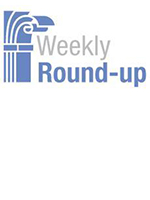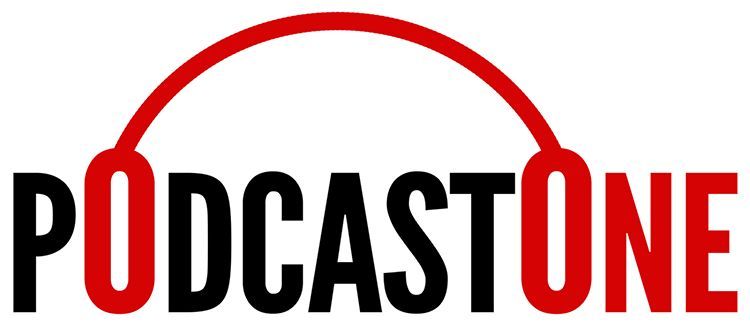
Weekly Roundup: August 10-14, 2020

Michael J. Keegan
Achieving gains in government IT performance with DevSecOps. The Department of Defense is adopting DevSecOps. It's an approach that has seen accelerated growth in the public sector over the last two years, especially within DOD and warrants a closer look. First, what is DevSecOps? DevSecOps is a combination of processes, tools and people, which combine with enterprise values across the disciplines of Development, Security and Operations. DevSecOps form a unique culture to enable more efficient delivery and management of secure software.
DOD eyes large COVID payments for contractors. Ellen Lord, the Defense Department's chief buyer, said the organization is considering lump-sum payments for COVID-19 claims rather than negotiating contract-by-contract.
CBP expects cloud management contract next year. Customs and Border Protection (CBP) will have a cloud management and integration contract solicitation out in the first half of next year that will help manage its expanding use of commercial cloud across its operations, according to one of its top technology managers. CBP's Enterprise Cloud and Integration Service (ECIS) contract solicitation will be out in the first quarter, or early in the second quarter, of 2021.
JAIC to expand ethics team. Jane Pinelis, the JAIC's chief of testing, evaluation, and assessment, said the center is working to expand its ethics team, which is charged with ensuring the Defense Department's AI projects meet ethical standards.
How to prioritize when everything is a priority. Create a daily list of your "most important tasks" by selecting to-dos or projects that support your larger goals or that you've been putting off, writes Naphtali Hoff. "Odds are that, the longer you've been thinking about something, your mind is telling you that it's important enough to make this list," he writes. SmartBrief/Leadership
5 areas that can make or break new leaders. New leaders should remember their responsibility to empower other people, be humble, manage up and regulate their emotions, writes Lolly Daskal. "There will be plenty of time to set strategies, change work charts, hand out new roles and provide new goals, but first you must do the things that will earn you the respect you need in your role as a leader," she writes. Lolly Daskal
3 steps to making really bad decisions. Leaders make bad decisions when they overlook important information, identify the wrong source of success and get stuck in either-or dichotomies, writes Michael Hyatt. "Consider asking yourself and your team, 'If we couldn't do either of these, then what would we do?' " he writes. Michael Hyatt
Why agile is different than the old ways. Agile companies have clear principles that can be easily distinguished from old-line corporate practices, argues Steve Denning, who discusses a table of principles, processes and practices for agile versus traditional management. "We need to keep in mind what good Agile looks like -- essentially a better way for human beings to create more value [for] other human beings," he writes. Forbes
Raise your energy level to energize your business. Managing individual and organizational energy levels can be made easier when you have a framework, such as a four-square quadrant for organizational states supplied by Joseph Harder of the University of Virginia's Darden School of Business. He offers questions and exercises for leaders to identify energy levels and start improving them. Darden Ideas to Action (University of Virginia)
John Kamensky
VA Tripled Its Telework. Federal News Network reports: “As the pandemic-driven stampede to telework began, the VA nearly tripled its work-from-home employees. . . “We ended up leveling out at about 140,000. It was our high water mark,” [CIO James] Gfrerer said.”
Updating the CFO Act The Government Accountability Office released a report assessing the progress of the Chief Financial Officers Act of 1990, noting substantial progress and improvements in financial management. It offers recommendations in eight areas for further improvements in the future.
Unsung Heroes. Government Executive profiles four federal employees working behind the scenes who had a positive, immediate and ongoing impact on the coronavirus pandemic response efforts.
Covid-Driven Changes to Workforce. Derek Thompson, writing for The Atlantic, offers: “three second-order predictions—for our economy, our workforce, and our politics. Because predicting the future is, like dart throwing, easily done and often misdirected, each prediction ends with the best argument I can think of for why it won’t actually come true.”
National Service. Leon Panetta, in an op-ed for The Hill, calls for expanded national service opportunities for America’s youth, noting: “Our national service infrastructure, which deploys full-time civilian service members into our communities, is the perfect vehicle.” This follows similar calls by the National Commission on Military, National, and Public Service, the Commission on the Practice of Democratic Citizenship, and the National Academy of Public Administration.
Hiring Changes. Federal News Network reports: “The Office of Personnel Management has an ambitious timeline to roll out and implement the administration’s new federal hiring executive order. . . . The hiring EO, which the president signed back in June, removes college degree requirements from federal positions unless they’re legally necessary — and it urges agencies to use skills-based assessments when evaluating the abilities of a job applicant. . . . OPM will go through more than 400 “occupational qualification standards and determine where educational attainment requirements are inappropriate.”
New Guidance on Customer Service. NextGov reports: In its annual update to Circular A-11 guidance for all federal agencies, the Office of Management and Budget included significant changes and additions to Section 280, which deals entirely with improving customer experience and service delivery. . . . Among the most important changes are OMB’s expanded definitions of the terms “customer” and “service delivery” as they relate to the federal government.
Employee Survey Postponed, Again. Federal News Network reports: “OPM postponed the employee viewpoint survey at the end of March to allow agencies to focus on their missions and the government’s still-nascent response to the ongoing coronavirus pandemic. The survey would go out to employees on July 13, OPM announced at the time. . . . But a day or two before the viewpoint survey was supposed to go out to the field, OPM announced it would delay the FEVS a second time. It would push back survey administration to Sept. 14.”
* * * * * *
Next Week on The Business of Government Hour: A Special Series focusing on Leading Through Uncertain Times with Chester Elton co-author with Adrian Gostick of Leading with Gratitude. Why is gratitude an essential quality in an effective leader today? What practices can help leaders in uncertain times? Join host Michael Keegan as he explores these questions and more on The Business of Government Special Edition.
Broadcast Schedule: The show airs Monday at 11 a.m., and Friday at 1 p.m. on Federal News Network 1500AM WFED
Anytime, Anywhere on...

https://www.podcastone.com/the-business-of-government-hour

https://itunes.apple.com/us/podcast/the-business-of-government-radio-hou



